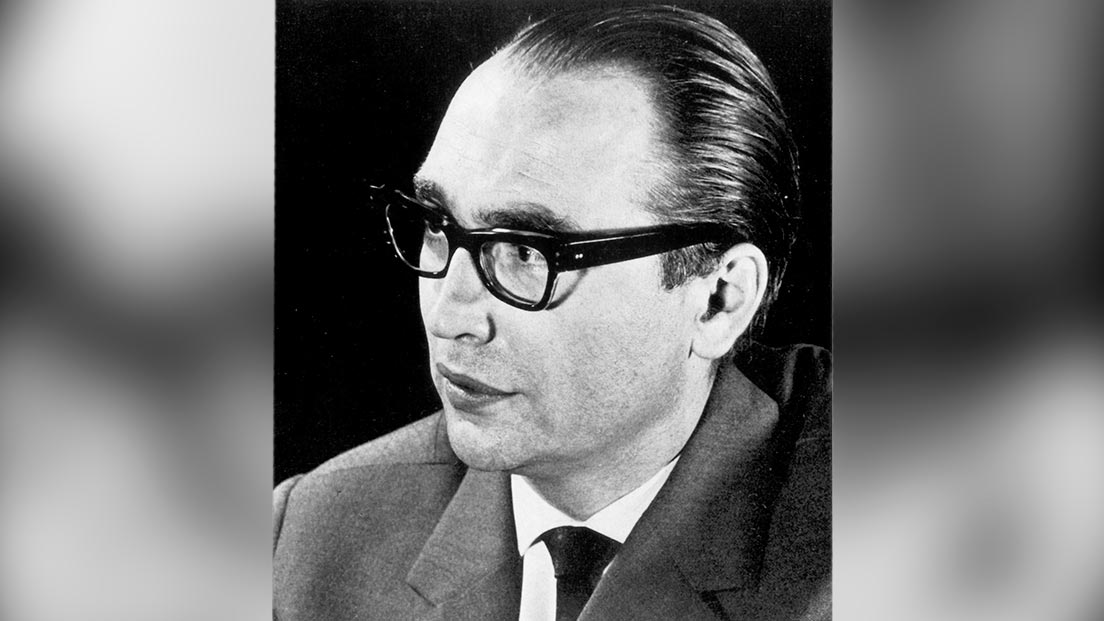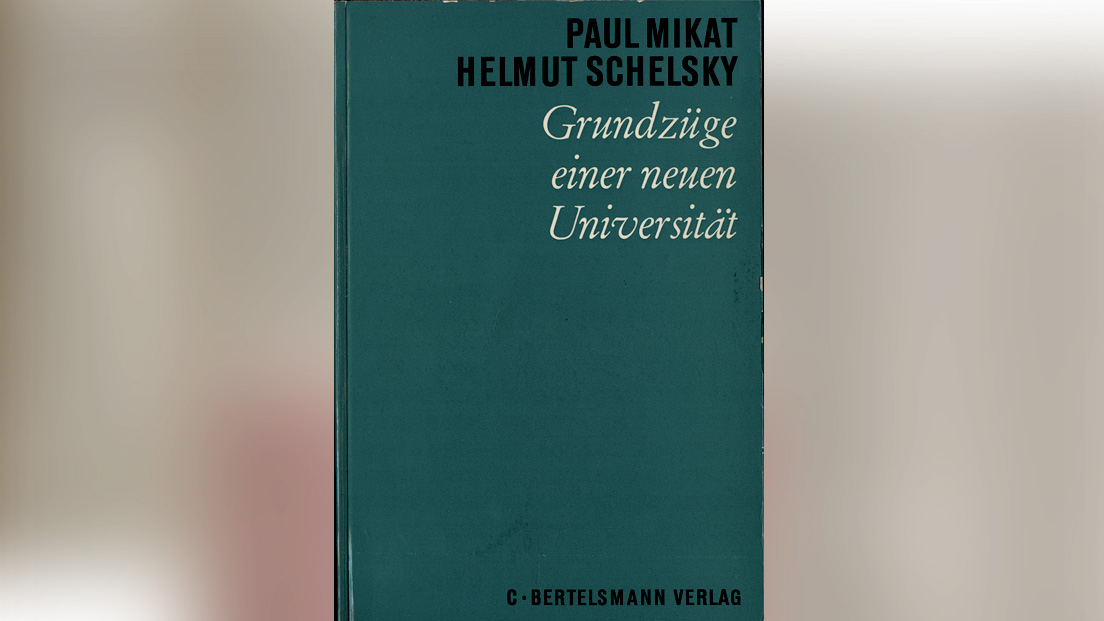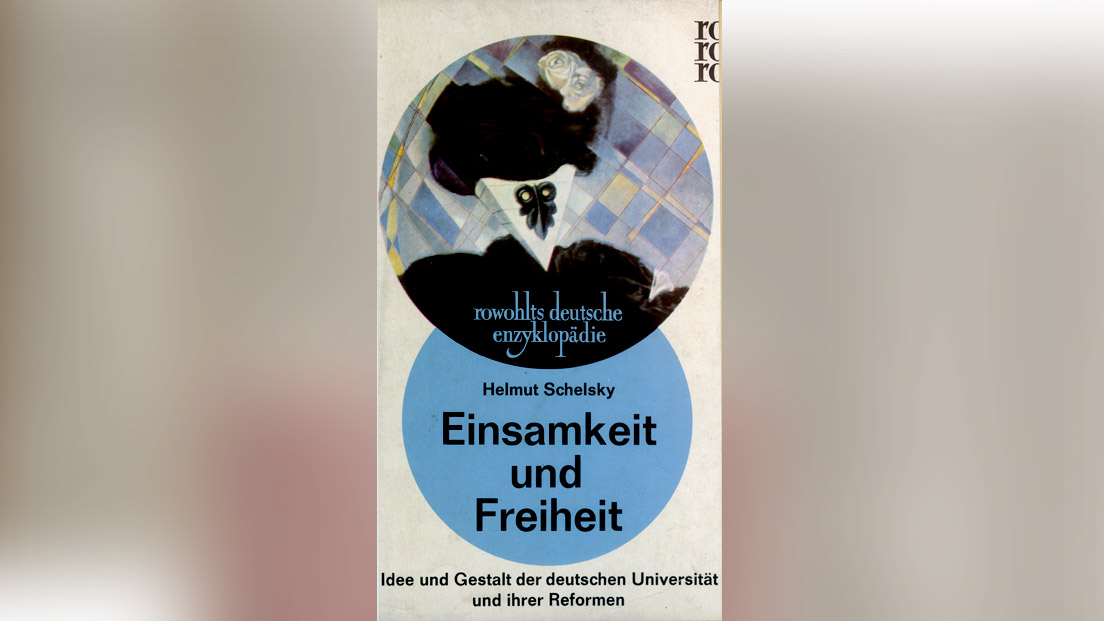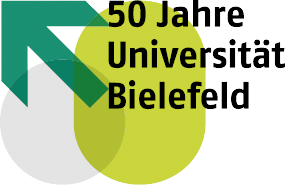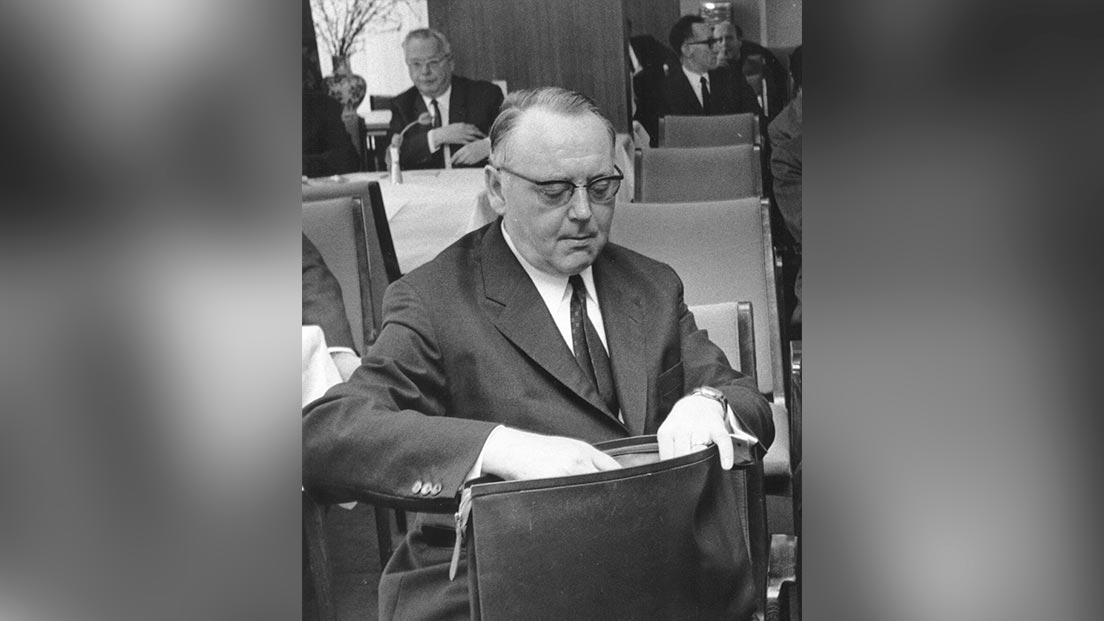
–
Photo: Günter Rudolf
Source: Universitätsarchiv Bielefeld
Before the planning contract was announced in the press, Mikat and representatives of the ministry had intensive discussions with Schelsky. As one of the most important sociologists in Germany who “set the agenda for the Zeitgeist” (Ludolf Hermann), Schelsky had in the 1960s increasingly turned his attention to education policy issues and the reform of the German higher education system. In an extensive article in the Frankfurter Allgemeine Zeitung (FAZ), Schelsky outlined his concept on how to found universities and constructive and critical approaches to doing so in West Germany. With this article and his 1963 monograph “Einsamkeit und Freiheit: Idee und Gestalt der deutschen Universität und ihrer Reformen” (Loneliness and Freedom: Ideas and Form of the German University and its Reforms), Schelsky was considered an expert on the topic.
Schelsky given free hand
On 20 January 1965, when Mikat approached him privately about founding a university in East Westphalia and soon afterward offered him the chairmanship of a founding committee, Schelsky still did not have a finished concept up his sleeve. He was now forced to apply his theoretical ideas to a meaningful and practical plan for the University. Only two brief outlines on the “Basic Principles of Founding a University in East Westphalia” and “Basic Principles of a New University” as well as another personal meeting on 26 February seemed to have convinced Mikat. In his list of appointments, Schelsky notes under this date: “Full approval by Mikat. Gives me a free hand. Planning order”. Schelsky appointed his own members for this committee, despite having a list drawn up for him by the ministry. Able to work largely autonomously, which was unusual in the second half of the twentieth century, he began to work on “his” plans for the University.

